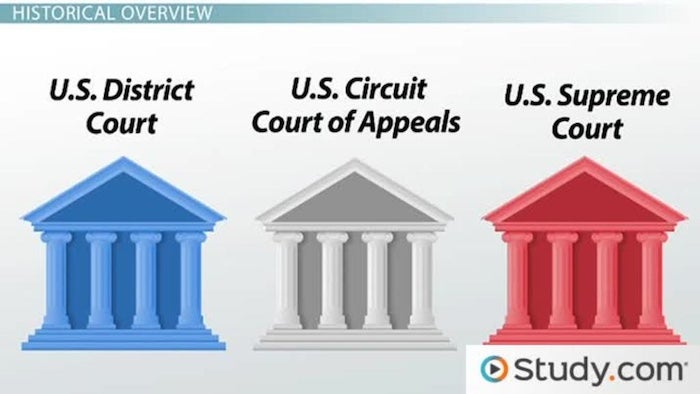Jim Beam column:Election maps tied up in court
Published 6:41 am Saturday, December 2, 2023

- Louisiana's election maps for Congress and the Legislature have been tied up in all three parts of the federal court system since they were created in 2022 with stilll no end in sight.(Image courtesy of Study.com).
Keeping up with Louisiana’s reapportionment legal cases is no easy task. The state Legislature drew new election district lines in a special session in 2022 based on the 2020 U.S. Census, However, its congressional and state legislative maps are still being debated in the courts over two years later.
Gov. John Bel Edwards vetoed the congressional map legislation because it didn’t provide for a second majority-Black district. However, his veto was overridden. Edwards said after the override, he expected the courts would throw it out and they did.
U.S. District Judge Shelly Dick of Baton Rouge ruled that the congressional redistricting plan violated the Voting Rights Act of 1965. The 5th Circuit Court of Appeals in New Orleans and the U.S. Supreme Court eventually agreed and ordered the Legislature to create that second majority-Black district.
The 5th Circuit ruled earlier this month that state lawmakers had to draw a new map by Jan. 15. Members of the newly elected Legislature don’t take office until Jan. 8, and that created a time problem.
The Advocate reported Thursday that Dick agreed to give lawmakers until Jan. 30. Rep. Phillip DeVillier, R-Eunice, who is expected to become speaker of the House, said that would still be difficult but it had to be done. If not, Dick will hold a trial on the merits of the current map beginning Feb. 5.
While all of that was going on, civil rights groups had filed suit saying the new state House and Senate election districts also violated the Voting Rights Act. Dick has that case and is going to decide whether Louisiana has to redo its legislative election districts.
Lawyers from the American Civil Liberties Union, the ACLU of Louisiana and the NAACP Legal Defense and Educational Fund are representing those who filed the suit.
Megan Keenan, an attorney for the ACLU Voting Rights Project, said, “We’re fighting to give Black voters in Louisiana a fair opportunity to elect a candidate of their choice.”
Keenan argued that when the Legislature redrew the election lines for its own seats, “it should have drawn new majority-Black districts to accurately represent the growth of the Black population in Louisiana.”
The lawsuit said the legislative redistricting created only one additional majority-Black district, when it should have created six to nine more majority-Black districts in the House and three more in the Senate.
While White voters make up 58% of the voting age population, they control 79% of the seats, according to the suit.
The Advocate said Attorney General and Gov.-elect Jeff Landry’s office has denied the maps violate the Voting Rights Act and wanted the state’s U.S. Middle District Court to halt the case until the Supreme Court rules whether civil rights groups can sue under the Voting Rights Act.
Dick denied that request and is expected to issue a ruling after a trial on Louisiana’s legislative maps. The trial is expected to run until Wednesday, Dec. 6, and Dick could take a couple of weeks to issue a decision.
Based on everything that has happened so far, regardless of what Dick might decide, appeals could be taken all the way to the Supreme Court.
Black voters would like to have that second majority-Black district before the midterm congressional election on Nov. 5, 2024, but it may not happen.
A total of 33 Senate seats and all 435 House seats are up for election on Nov. 5. Ballotpedia added that one Senate seat is up for a special election.
Clancy DuBos, Gambit’s political editor, in a column in The Advocate, quoted Dorothy Naime of Assumption Parish, the lead plaintiff in the legislative case. She summed up the sentiments of Black voters well.
Naime said, “It is time that Black voters all the way from my neighborhood in Napoleonville up to Baton Rouge and Shreveport are able to finally feel real hope that their voices will be heard in our political process. We are eager to see this vision through in the courts.”
Gov. Edwards in his veto of the congressional map said the Black voting age population makes up 31.2% of the total vote, almost one-third of the state’s population and deserves that second seat.
The governor quoted Democratic state Sen. Cleo Fields of Baton Rouge who on the floor of the Senate said only five Black members from Louisiana have been elected and seated in the U.S. House since statehood (1812) and the injustice cannot continue.
Unfortunately, like integration that took so long, nothing else comes easily in Louisiana politics.





